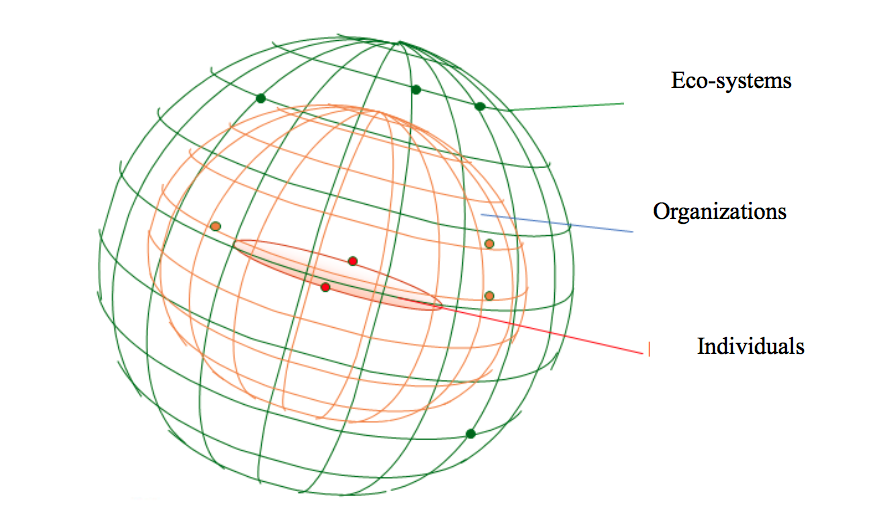Digital credentials
Digital credentials
Promoting sustainable, stackable, and shareable digital certificates and badges
In line with the common UN capacity development approach and firmly anchored under the ILO capacity development strategy, capacity development is understood by ITCILO as a process through which individuals, organizations and societies obtain, strengthen and maintain the capabilities to set and achieve their own development objectives over time. Capacity development may involve technical capacities (in such fields as employment, social security and health) and functional capacities (such as leadership, financial management, partnership and relationship building) and it may be implemented in several ways.
While training is a common factor, capacity development is best achieved through learning by doing, fostering relationships and partnerships, supporting research and knowledge-sharing, participation in communities of practice, South-South learning initiatives, on-the-job training, and other learning techniques that empower individuals and institutions to take charge of development challenges.
The ITCILO capacity development approach goes on distinguish three mutually reinforcing and interdependent levels of capacity development: individual, organizational, and resulting from the enabling environment. The first means increasing the skills and abilities of individuals; the second focuses on increasing the capacity of organizations to fulfil their mandates; and the third involves improvements in policies, legislation, regulations, labour market institutions, and societal systems.
Three intervention levels for capacity-development support

The digital certification advisory services offered by the Centre are targeted at the organizational level, here with focus on organizations linked to the ILO core constituency and other ILO development partners that offer learning services.
An important building block of a higher-quality management system for learning services is the recognition of learning outcomes by awarding digital certificates. Digital certification is the certification of learning outcomes by means of a digital credential. Digital credentials have several advantages over paper-based certificates or even PDF certificates: they can be stored on the block chain for third-party authentication, can be attached to online CVs or digital business cards, and they are portable. They constitute an important building block of the brand-support strategy of a learning-service provider since they allow interested parties to “click through” to the source of certification for more information.
Each digital certificate serves as a customer record in the data lake of a digital monitoring and evaluation system. Digital certificates are easily stackable along multi-step learning journeys that may cut across several tiers. Digital certificates also boost the operational efficiency and cut costs since credentials can be issued in real time, and printing and mailing costs do not apply.
A closer look at the ITCILO approach for introducing digital credentials
The introduction and rollout of digital credentials involves a series of steps and requires some upfront investment also because of the fact that issuing digital certificates is done through a third party service provider.
The steps of the process to roll out digital certificates with technical support from ITCILO involves:
- Inception meeting and organizational needs analysis
- Market research
- Elaboration of the rollout plan
- Facilitation of the contractual logistics
- Brand support
- Communication and advocacy
- Testing and roll-out
- Support on data analysis
- Phased hand-over to the organization
Digital credentials at the ITCILO
In January 2020, the Centre was still printing, archiving and mailing course certificates to participants, but in the span of just four months a switch was made to digital credentials. Discussions concerning the pilot started in May and the first digital credential was issued in September. Digitalization immediately and directly improved the way work is done at the Centre. Now participants can add their digital certificates and badges to their LinkedIn profiles and personal webpages, share their achievements with posts on social media, and improve their professional reputation with secure and verifiable credentials. Additionally, the staff of the Centre can skip time-consuming administrative work and focus on more innovative, big-picture ideas.
From a sustainability standpoint, digital credentials eliminate printing and mailing costs, reduce paper use, and streamline the logistical process. Now we have a lifelong digital archive of all our participants’ digital credentials. For participants, it is easier to share digital certificates and badges online (this is the first reference to the badges so we should maybe not mention it). Moreover, organizations and recruiters can verify the authenticity of the Centre’s digital credentials with a single click.
The Centre’s digital credentials use blockchain technology to protect participants’ data and prevent fraud. Once a credential is recorded on the blockchain, it cannot be altered or faked. If anyone were to attempt to create a fake credential, it would not verify against the blockchain record.
Also supporting life-long learning, the Centre’s digital credentials are stackable, ensuring the Centre’s ability to easily provide stackable credentials for our future diploma programmes.
Not only do digital credentials act as a very powerful promotional tool for the Centre’s training offers, their portability and the way in which they are being shared by the recipients provides detailed information about participant preferences and helps create a networking space in which potential participants can communicate with the Centre’s training teams. Additionally, they act as a direct channel by which participants provide immediate feedback on their learning and training experiences with the Centre.
By the end of 2022, the ITCILO will issue more than 40,000 digital certificates and badges, many of which have been shared hundreds of times and viewed by thousands of people. This is a significant step in the Centre’s accelerated digital transformation. For more information go to: https://www.itcilo.org/digital-credentials and https://www.itcilo.org/stories/introducing-itcilos-new-digital-credentials